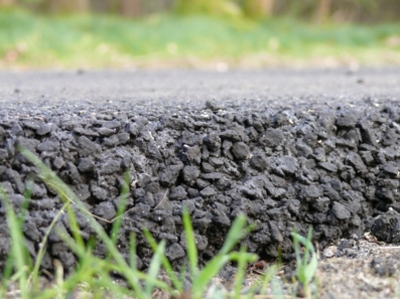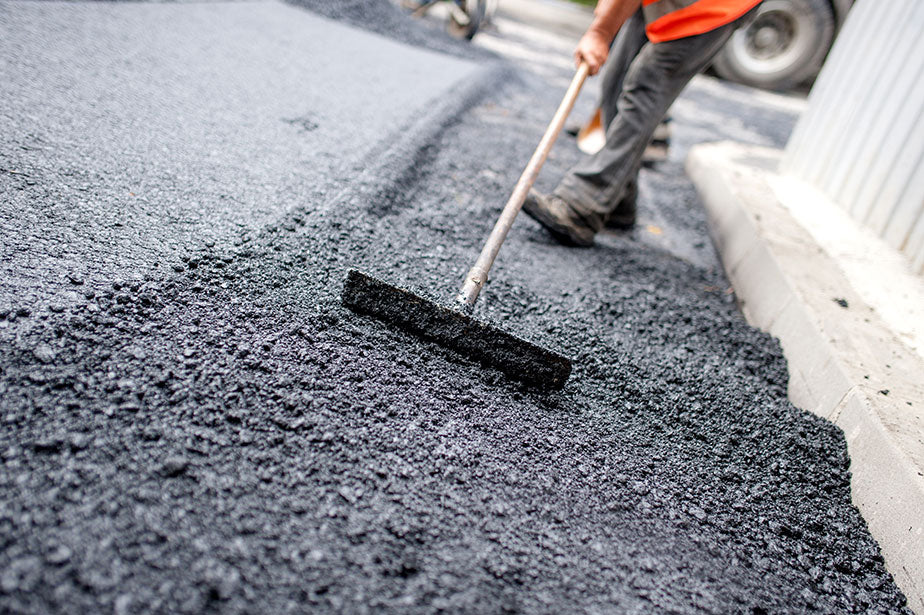Discovering the Environmental Benefits of Warm Mix Asphalt
The utilization of Warm Mix Asphalt in facilities tasks presents a compelling case for sustainable growth and ecological stewardship. By delving right into the complex details of its manufacturing procedures and the innovative use recycled materials, a deeper understanding arises of exactly how this innovation surpasses mere surface applications. The ecological benefits of Warm Mix Asphalt extend far past preliminary impressions, providing a nuanced perspective on how this product can lead the way for a greener future.

Decreased Greenhouse Gas Emissions
Hot Mix Asphalt production provides a substantial decrease in greenhouse gas exhausts contrasted to other pavement materials. The manufacturing process of Hot Mix Asphalt involves warming the mixture of accumulation and asphalt binder to high temperatures. This procedure needs much less energy contrasted to the manufacturing of different sidewalk materials, leading to reduced greenhouse gas exhausts. In addition, using recycled materials in Hot Mix Asphalt further adds to minimizing its ecological effect. By incorporating redeemed asphalt sidewalk and recycled asphalt roof shingles right into the mix, the need for virgin materials is lowered, causing power savings and lowered discharges connected with extraction and handling.
Researches have shown that Hot Mix Asphalt pavements have a smaller carbon impact over their life process compared to other pavement choices. The durability and recyclability of Hot Mix Asphalt further improve its ecological advantages by reducing the need for regular upkeep or substitute, thus preserving resources and decreasing emissions linked with repair tasks.
Energy Effectiveness and Conservation
The manufacturing process of Warm Mix Asphalt not only decreases greenhouse gas exhausts but also contributes significantly to power efficiency and preservation efforts. Energy effectiveness is a crucial advantage of Hot Mix Asphalt manufacturing contrasted to various other pavement types. The longevity of Hot Mix Asphalt decreases the frequency of upkeep and reconstruction, leading to long-lasting power savings.
Sustainable Sidewalk Solutions

One secret facet of lasting pavement remedies is making use of recycled products such as reclaimed asphalt sidewalk (RAP) and recycled asphalt shingles (RAS) By including these materials right into the asphalt combinations, the need for virgin resources is decreased, resulting in reduced energy intake and greenhouse gas exhausts throughout manufacturing. Additionally, the reuse of these materials aids divert waste from land fills, adding to an extra sustainable and round economic situation.
Furthermore, lasting pavement services focus on enhancing pavement style to enhance performance and long life. Strategies such as cozy mix asphalt (WMA) and stone mastic asphalt (SMA) improve the durability and resilience of sidewalks, minimizing the requirement for constant repairs and replacements. By executing these cutting-edge strategies, facilities developers can create sidewalks that not just more helpful hints meet high-performance requirements but additionally reduce their environmental impact.
Minimized Environmental Effect
Warm mix asphalt, in particular, offers numerous advantages that contribute to decreasing the total environmental footprint of road infrastructure. One crucial aspect is the recyclability of asphalt, which can be reused numerous times without jeopardizing its high quality - Regrading.
Moreover, the production of warm mix asphalt emits lower levels of greenhouse gases contrasted to various other pavement materials, making it a more eco-friendly option. The energy performance of asphalt plants has actually also enhanced for many years, bring about lowered fuel consumption and reduced discharges. Furthermore, the smooth surface of hot mix asphalt reduces rolling resistance for vehicles, resulting in reduced fuel intake and lowered air pollution from car discharges.
Payment to Environment Modification Reduction
Hot mix asphalt plays a vital function in mitigating climate modification via its navigate to this website sustainable residential properties and lowered environmental effect. One considerable payment to environment change mitigation comes from the power efficiency of warm mix asphalt production. Contrasted to other pavement options, the production process for warm mix asphalt takes in much less energy and emits lower degrees of greenhouse gases, thus reducing its overall carbon footprint.
Furthermore, hot mix asphalt's capability to reflect sunshine, understood as albedo, aids in decreasing city warm island effects. By lessening warmth absorption and retention, warm mix asphalt pavements can decrease the demand for a/c in metropolitan areas, consequently reducing greenhouse gas discharges connected with energy consumption for cooling functions.
Additionally, the resilience and recyclability of warm mix asphalt additionally boost its climate change mitigation abilities. Regrading. The lengthy life expectancy of asphalt sidewalks minimizes the requirement for constant fixings or substitutes, ultimately reducing the carbon emissions linked to road maintenance tasks. The recyclability of asphalt products lessens the need for virgin sources and lowers the ecological effect of pavement building and construction, aligning with sustainable methods for environment change reduction.
Conclusion
To conclude, the ecological benefits of Hot Mix Asphalt show its considerable contribution to decreasing greenhouse gas emissions, conserving power, and decreasing environmental influence. This sustainable pavement option aligns with climate adjustment reduction initiatives, promotes resource preservation, and enhances facilities growth. By using recycled products, energy-efficient manufacturing processes, and resilient style, Hot Mix Asphalt plays a crucial function in cultivating a more ecologically friendly method to facilities building.
The manufacturing process of Hot Mix Asphalt includes heating the combination of aggregate and asphalt binder to high temperature levels. By incorporating reclaimed asphalt sidewalk and recycled asphalt roof shingles right into the mix, the need for virgin materials is lowered, leading to power savings and decreased emissions associated with extraction and processing.
One secret facet of sustainable sidewalk solutions is the use of recycled materials such as recovered asphalt sidewalk (RAP) and recycled asphalt shingles (RAS) Methods such as cozy mix asphalt (WMA) and rock mastic asphalt (SMA) boost the resilience and durability of pavements, decreasing the need for frequent repair services and substitutes. Contrasted to various other anchor sidewalk options, the production process for warm mix asphalt eats less power and gives off lower levels of greenhouse gases, therefore decreasing its total carbon footprint.